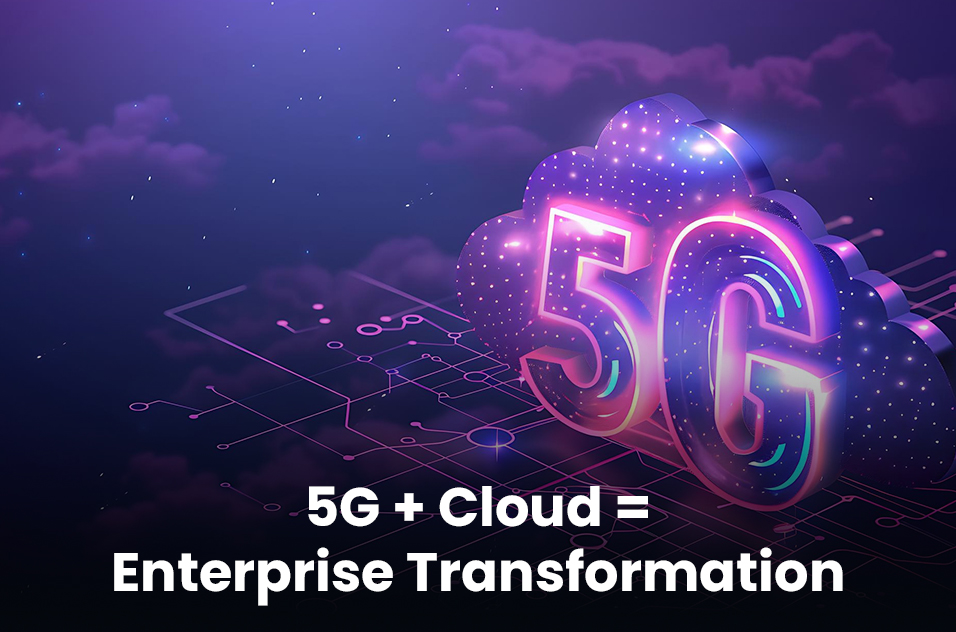
5G is set to transform Cloud Applications by making them faster, smarter, and more reliable. With ultra-low latency and high bandwidth, 5G enhances Enterprise Cloud Applications, enabling businesses to process massive data streams, support real-time collaboration, and unlock innovations like AI-driven automation and IoT scalability.
In simple terms, 5G acts as the bridge between next-generation networks and modern Cloud Applications, ensuring enterprises achieve agility, efficiency, and resilience in the digital era. For organizations aiming to thrive in a hyperconnected world, adopting 5G-powered Cloud Applications is no longer optional; it’s a strategic necessity.
Let’s break down how 5G is reshaping Enterprise Cloud Applications and what it means for organizations worldwide.
Cloud Applications are software programs hosted on cloud infrastructure that can be accessed remotely via the internet. Instead of running entirely on local servers, they leverage distributed data centers to deliver scalability, flexibility, and cost savings.
In enterprises, Cloud Applications include tools like ERP systems, CRM platforms, data analytics solutions, and collaboration tools.
These apps are critical for:
With Enterprise Cloud Applications, companies can innovate without heavy upfront IT investment, making them essential for modern digital transformation.
5G provides the speed and bandwidth required to unlock the full potential of Enterprise Cloud Applications. Older networks, like 4G, often struggle with the performance demands of real-time workloads, large-scale data processing, and billions of connected devices.
Here’s why 5G is vital:
With these features, Enterprise Cloud Applications become not only faster but also more intelligent and resilient.
5G enhances Cloud Applications by reducing delays, improving connectivity, and enabling real-time operations.
Practical improvements include:
These changes ensure Cloud Applications operate at maximum efficiency in industries that depend on speed and accuracy.
5G-powered Cloud Applications bring measurable business advantages.
Key benefits include:
Enterprises that adopt 5G-driven Enterprise Cloud Applications gain the agility needed to compete in dynamic markets.
Industries relying on real-time data, automation, and customer experience will benefit most from 5G-enabled Cloud Applications.
Examples include:
These industries can unlock entirely new business models by leveraging Enterprise Cloud Applications integrated with 5G.
The combination of 5G and Cloud Applications will spark innovations that redefine digital enterprises. Beyond efficiency, this convergence is expected to accelerate new trends that transform how industries operate.
Emerging trends include:
These trends signal that 5G will not only enhance Enterprise Cloud Applications but also push businesses into a future-ready digital economy.
Despite its promise, adopting 5G for Cloud Applications comes with challenges.
Some of the biggest hurdles include:
Enterprises must carefully plan their Enterprise Cloud Applications strategy to overcome these challenges while maximizing the benefits of 5G.
5G will reshape Cloud Applications by making them faster, smarter, and more reliable, driving enterprise innovation. Businesses that adopt early will gain a competitive advantage in automation, efficiency, and customer experience.
As more industries move toward real-time, data-driven operations, 5G will act as the catalyst for new business models and smarter ecosystems. Enterprises that strategically combine 5G with Cloud Applications will not only streamline operations but also unlock entirely new avenues of growth and innovation.
Looking ahead, the synergy between 5G and Enterprise Cloud Applications will define the next era of digital transformation. Organizations that adapt now will be best positioned to lead in a hyperconnected marketplace. To stay competitive, they should begin exploring 5G-enabled Cloud Applications today and build resilience for the coming digital era.
1. How does 5G support IoT in Enterprise Cloud Applications?
It connects thousands of IoT devices simultaneously, allowing real-time data collection and processing in the cloud.
2. Can small businesses benefit from 5G-enabled Enterprise Cloud Applications?
Yes. Even small businesses can access faster collaboration, smoother customer apps, and cost-effective scalability with 5G.
3. How will 5G improve the performance of Cloud Applications?
5G reduces latency, increases bandwidth, and enables real-time processing, making Cloud Applications faster and more efficient.
4. Will 5G replace cloud infrastructure?
No, 5G enhances connectivity, but Cloud Applications still depend on robust data centers and hybrid architectures.
5. Is 5G necessary for all Cloud Applications?
Not always. While basic apps work fine with 4G, industries needing real-time analytics, IoT, or AR/VR will require 5G.
By continuing to use the website, you agree to our Cookie Policy. To learn more about how we process your personal data, read our Privacy Policy
